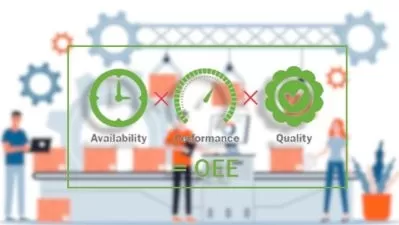About Product ManagementLearn More
Product managers oversee the processes of new and existing products, from design to deployment, to ensure a successful rollout and effective distribution of products. Production management utilizes product marketing, deployment strategies, and business analytics skills. Production management courses on Udemy can introduce you to being a product manager and offer new ideas and approaches to the more experienced.
Sort by:
Sorting
The newest
Most visited
Course time
Subtitle
Filtering
Courses
Subtitle

Udemy


Evan Kimbrell and Cole Mercer
Advanced Product Management: Vision, Strategy & Metrics 5:28:55
English subtitles
12/25/2024

Udemy


Anna Kolenkina
Become a Better Engineer by Understanding Product Management 5:34:30
10/16/2024
Subtitle

Linkedin Learning


Steven Brown
Production Management Foundations 1:16:28
English subtitles
06/05/2024
Subtitle

Udemy


Mauricio Rubio - Agile Guru & Founder of YESI EDUCATION, AgileKB-Agilelee
Product Management Crash Course; IT Product Management 2:23:30
English subtitles
05/19/2024

Udemy


Adewale Adeyemo
Learn the skills to succeed as a startup or product manager. 1:14:05
02/21/2024

Udemy


Masha Ostroumova
Agile Planning and OKRs: Transforming Your Project Outcomes 2:15:37
12/26/2023
Books
Frequently asked questions about Product Management
Product management is a business role for which you manage specific products within your company. It combines strategy, design, leadership, and marketing to help a company successfully sell its product. Product management also guides a product’s lifecycle at every stage, including product development, positioning, and pricing. The focal point of product management is focusing on the product and its customers. In addition to building the best possible product, product management advocates for product customers to ensure that their needs are met. The scope of product management can also differ depending on the organizational structure and demands of the business. For example, factors like the company's size, if they sell physical goods or services, or whether they sell to other companies or directly to customers can all impact product management.
To be a product manager, you'll want to gain skills that will help you balance three things: profit, customers' needs, and what deliverables are technically and operationally possible. Because the role oversees product development, you should also be able to design product strategies that showcase your understanding of how companies approach both product development and product marketing. Keep in mind that product manager skills will vary depending on the size of the company. For instance, you're likely to be more hands-on if you strive to work at a small business. Product managers at larger companies, on the other hand, have the option to collaborate with marketing teams, researchers, and analysts to obtain the information they need. Other skills you'll want to brush up on include communication skills, technical expertise, business skills, research skills, analytical skills, interpersonal skills, marketing skills, data analysis skills, strategic thinking, and prioritizations skills.
Although product managers and project managers often work together, their roles are separate and have some unique characteristics. One of the main differences is that product managers support the entire lifecycle of a product, while project managers assist with a variety of company projects as needed on a short- or long-term basis. A product manager might assign project managers to help manage specific tasks throughout the stages of product development. While the product manager focuses on the product's success, the project managers' will make sure that the team completes the project on time and within budget.
The product management lifecycle includes both strategic and tactical processes. In general, product management processes can consist of marketing, customer analysis, customer engagement, managing vision and purpose, strategic implementation, product development, and measuring performance. These process stages consist of inbound and outbound activities. Inbound activities relate to product development, vision, strategy, product testing, and launch – to name a few. Outbound activities include anything marketing or sales-related. This includes branding, pricing, sales support, analyzing customer feedback, and more. Product managers don’t perform each of the activities within the product management lifecycle, but they instead oversee that they are fulfilling product-related needs and goals.





















